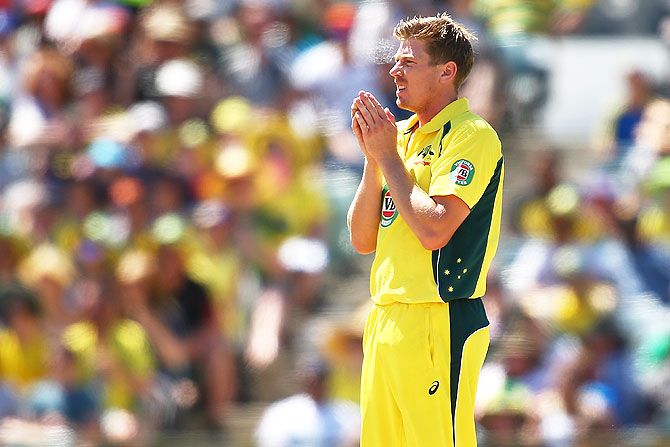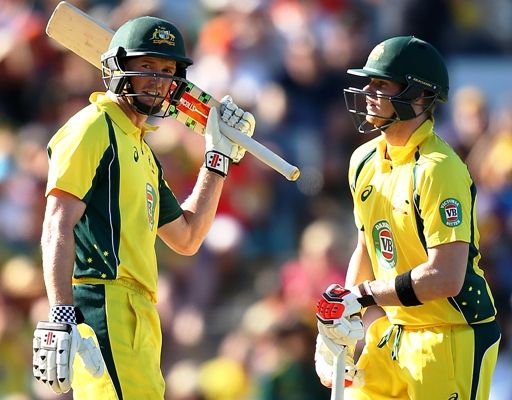Aus all-rounder James Faulkner says that the new Powerplay rule crucial to team's total

Australian all-rounder James Faulkner reckons that the 22-yard strip used at the Gabba for the second ODI against India will also be "flat" but at the same time more "competitive" than the WACA pitch where both teams enjoyed a run-feast.
"Everyone was quite surprised with how the wicket played at Perth. It was obviously very flat and we saw so many runs being scored. I think any time over 300 runs is being scored and chased, it's definitely a flat wicket," Faulkner said ahead of the second ODI against India.
"I'm expecting the same sort of scenario here as well. I have not seen an ODI wicket here (in Brisbane) that has not been flat for a fair while. It should have good pace and carry and should be a good contest again," said Faulkner ahead of the game.
Australia fielded an all-pace attack in Perth and are expected to go in with the same bowling combination at Brisbane as well.
"It's a tough gig bowling at Perth and here. Runs can be scored so fast due to the pace on the ball. The pitches don't really grip as much as the MCG or Canberra, ones that we will come up against later in the tournament. I think everyone got hit the other day, so you can't really single out any one due to how flat the conditions were," he said.
"The big change was the overs leading into the Powerplay, with batsmen tending to milk it around and staying, and then using that as a launching pad.
"That was obviously a dangerous time for any team batting if you lost a wicket before that five over period, it could halt your momentum. Likewise, if you didn't lose a wicket, it could help them set up a big total.
"I quite like the new rules. It goes back to five in the last 10 overs. It's still a massive challenge for the bowlers no doubt, but it's a bit more normal now," he added.

The highlight of Australia's run-chase on Tuesday was the manner in which Steve Smith and George Bailey went after the Indian spinners. Faulkner denied that it wasn't planned but added that is where Australian strength will lie going ahead.
"Obviously, the first two games being in Perth and Brisbane, where it traditionally doesn't spin as much in one-day cricket, it is hard for any spinner, whether it's India or Australia.
"It's a hard gig, but look, it's definitely going to change when we play in Melbourne, Canberra and in Sydney at the back end, where it will spin. We'll just take it game by game," said the all-rounder.
"A lot of it would come down to the total, with 300-plus you have to try and take on any bowler early to unsettle them. It wasn't an aim of ours as a team to go after the spinners, or anyone. It was just playing the ball. I thought they both played beautifully," he added.
Lastly, Faulkner warned his opponents that the Australian batting line-up packed enough punch to chase down tall targets, despite missing David Warner and Mitchell Marsh for the upcoming match.
"Since Darren Lehmann's taken over as coach, he's given us a hell of a lot of confidence as a batting group, and as a group in general. He said the other night after the game he'd rather see us being bowled out for 200 while trying to reach 300-plus, than sort of nudging it around and making a meal of it.
"I've a hell of a lot of confidence playing under him and I know every other player in the group does as well, to try and stretch our limits as a group," he signed off.











 © 2025
© 2025